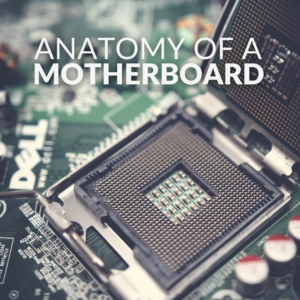Whether you are a beginner or veteran PC expert who wants to touch up on your hardware knowledge, our dedicated ‘Anatomy Of’ series is for you.
We’ve designed this in-depth series of articles to showcase what goes into all the important PC components. In this article, we’ll be taking a deep dive into a PSU (power supply).


What is a PSU?
To keep it simple, the PSU is responsible for supplying your PC with a consistent and reliable flow of electricity. Without, you won’t be able to turn on your system. Every power supply comes with a specific wattage. The higher the wattage is, the more power it can deliver to your PC.
What Size Power Supplies are there?
Power supplies come in a variety of different form factors, designed to suit every type of gaming PC.
The most common PSU form factors include:
- ATX
- TFX
- SFX
- SFX-L
Want to know more about power supplies and their vital role inside your PC? Check out our ultimate guide to PSUs.
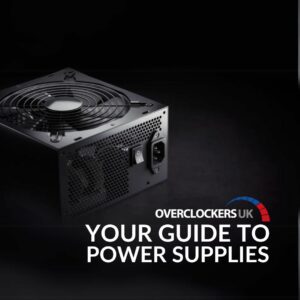
Modular, Semi-Modular, and Non-Modular
One of the key differences in all the different types of power supplies is the cables. You can opt for a modular, semi-modular, and non-modular PSU.

Modular
A modular power supply has no pre-attached cables. You can choose to install only the cables you need, resulting in less cables to manage.
Semi-modular
In comparison, a semi-modular PSU will normally only come with only the 24-pin cable pre-wired. All the other cables aren’t attached, allowing you to plug in only the ones you need.


Non-modular
Alternatively, a non-modular PSU has all the cables pre-wired. You can’t pick and choose which cables you want to install.
PSU Components
Whilst there may be multiple different form factors and cable options to choose from, a PSU will utilise all the same core components.
Interior Components
Capacitors
The capacitors are responsible for stopping any unexpected changes in the input voltage.
Capacitors are typically paired with a series of inductors to effectively reduce the damage of any power spikes.
Bridge Rectifier
A bridge rectifier allows the PSU to convert AC (alternating current) to DC (direct current). This is often surrounded by a heatsink to help with any excess heat.
Power Factor Correction Converter (APFC)
The APFC tailors the flow of power to specifically match the components inside the PSU.
Pulse Within Modulation (PWM)
The PWM circuit is responsible for converting the DC back into AC before the flow of power reaches the transformer.
Transformer
The transformer reduces the main voltage to 12 volts. Transformers and the PWM circuit are often surrounded by smaller isolators to reduce any voltage interference.
Voltage Regulation Modules (VRMs)
To keep it simple, these modules do exactly as it sounds. Regulate the voltages of the current that are passing through, along with creating 5- and 3.3 volt outputs.
Supervisor
The supervisor is a small interior chip that is responsible for monitoring any output of power. Ensuring that it isn’t too much or too little. If it is either of these, the supervisor will shut off the power supply.
Ground/Common Line
The ground, or common line, is the two long wires that form a loop from the PSU to your PC and then back to the PSU.
Exterior Connectors
No matter if you’ve got a modular or non-modular PSU, it will come equipped with a lot of different connectors.
Typically, every PSU will come with a:
- 24-pin ATX
- 4 + 4 pin ATX
- SATA power connector
- Molex power connector
- Mini-Molex power connector
- 6 + 2 pin PCIe

Our PSU connector guide goes into more detail about each of these different connectors and what they do.
80 Plus Ratings
‘80 Plus Rating’ is a phrase that you’ll often hear when talking about power supplies. Each PSU comes equipped with an 80 Plus Rating which is a certification granted to power supplies with at least 80% efficiency at 20, 50, and 100% loads.
The most common 80 Plus Ratings are:
- Bronze
- Silver
- Gold
- Platinum
- Titanium
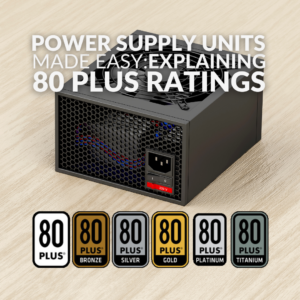
Our dedicated blog article has all the information you need for a more in-depth look at different 80 Plus Ratings.
ATX 3.0 Power Supplies
ATX 3.0 power supplies are a brand-new generation of PSU released in tandem with the NVIDIA RTX 40 Series graphics cards.
They have been engineered to handle the heavy power requirements of the latest generation of hardware, thanks to the 16-pin 12VHPWR power cable. These cables deliver more power in a smaller area, along with allowing your GPU and PSU to communicate more efficiently.

If you have upgraded to a new 40 Series GPU and are unsure on if you need an ATX 3.0, be sure to take a look at our in-depth guide.
Don’t Know Which PSU is for You?
Struggling to determine what type of PSU and wattage you need for your gaming PC? Check out our dedicated PSU calculator! You can use this handy online tool to work out the wattage of all your hardware and find the perfect power supply for your system.
Shop All Power Supplies
We stock an incredible range of power supplies with so many different wattages, 80 Plus Ratings, and form factors to choose from. We’ve included a few of our top recommendations below, but you can also shop our entire range by clicking the button below.
ASUS ROG Strix 750W 80 Plus Gold Modular PSU:
- 750W power capacity
- 80 Plus Gold rating
- Modular form factor
- ATX 3.0
- PCIe 5.0


Corsair RM850x Shift 80 Plus Gold Modular PSU:
- 850W power capacity
- 80 Plus Gold rating
- Modular form factor
- ATX 3.0
Kolink Regulator 750W 80 Plus Gold Modular PSU:
- 750W
- 80 Plus Gold rating
- ATX 3.0
- PCIe 5.0
- Modular form factor

If you want to touch up on your knowledge of other vital PC components, be sure to take a look at the rest of our ‘Anatomy Of’ articles.
CPU
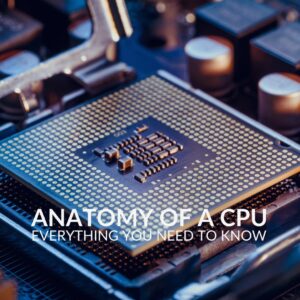
RAM
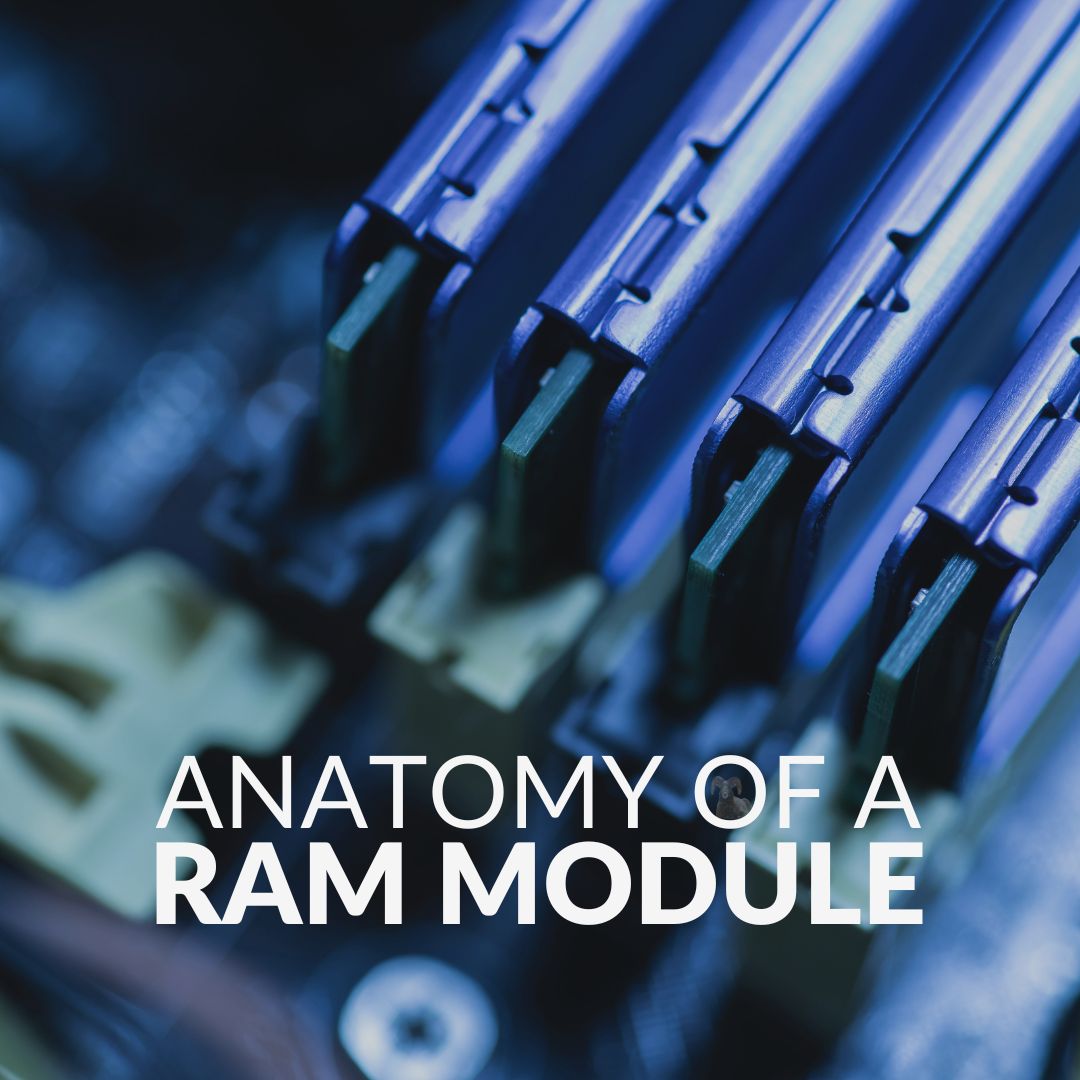
Motherboard
